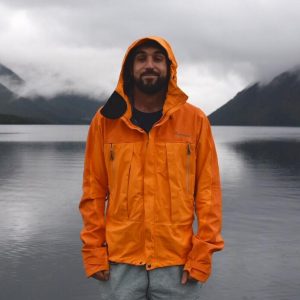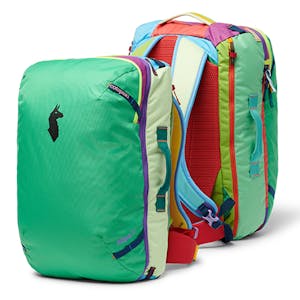A wrap of the biggest stories and best writing about the outdoors from New Zealand and around the world.
DOC’s director-general Lou Sanson will step down from the position after eight years.
“I cannot begin to tell you how much I’ve loved working here and contributing to conservation in Aotearoa,” he said in a statement.
Sanson started his conservation journey in 1971, working as a track cutter in Copland Valley.
From 1987, he helped set up DOC as Invercargill’s first district conservator, and in 2002 headed Antarctica New Zealand.
“After eight incredible years working with so many superb staff, whānau, hapū and iwi, community groups, local government, commercial partners and philanthropists, it’s time for me to get back into the nature I love and grew up in,” he said.
Sanson will continue working in the position until September.
Where was Tenzing Norgay from, and does it matter?
Since his famous Everest ascent with Sir Edmund Hillary, climber Tenzing Norgay has had his identity debated and fought over.
“When Tenzing was born and growing up in the present day physical boundaries did not exist between Tibet, Nepal or India. Passports and national identity cards were not needed to cross over,” Nepali Times reports.
“As in the case of the Buddha, the birthplace, nationalities and identities of Tenzing are often debated and contested. Where was he born? Was Tenzing a Tibetan, a Nepali, or an Indian?”
In a recently translated interview, which was aired on All India Radio Kurseong on July 3, 1985, a year before he passed away, Norgay settled the debate claiming Tibetan heritage, but ultimately, it does not matter.
“In these complex matters, the choice should be left to the individual. Our job is to listen to them, honour their decision and celebrate the achievement,” writes journalist Lhakpa Norbu Sherpa.
Read the full interview here.
Man survives two weeks in wilderness
A man who disappeared while camping in an Oregon forest has been found alive after 17 days.
Harry Burleigh, 69, was reported missing by his wife after he failed to return from a trip.
After more than two weeks of search and rescue efforts, he was found in stable condition in a shelter by a team from Jackson County Search and Rescue.
“This was the outcome we all have been looking for in this case,” Sgt. Brad O’Dell said.
Read the full story on Yahoo news.
Mountaineer urges more caution on Taranaki Mounga
An experienced mountaineer is urging Kiwis to be more prepared in the outdoors.
Lindsay Maindonald spoke out after spotting two poorly equipped climbers high on Fantham’s Peak a week after two trampers died climbing it.
The pair had been to the top without the right gear, the day after the rahui was lifted.
Maindonald, who has friends who risk their lives in search and rescue operations, was annoyed at the pair’s poor choices.
See TVNZ for the full story.
For newbies, the easier the adventure, the better
You don’t have to suffer for your journey to become an adventure, writes Hazel Phillips.
“In fact, if you’re trying to get tramping newbies to love your pastime, it’s best if the experience is far easier,” she said.
Phillips’ introduction to tramping was a muddy slog up Thompsons Track in Kaimai Mamaku Forest Park.
“I was new to tramping and found it hard going,” she said.
“It was cold, even for July, and it started raining just as we got there.”
Though she became more resilient over time, Phillips said she keeps the experience in mind when taking newbies tramping.
Read the full story here.
Mountain Film Festival launches programme
The NZ Mountain Film and Book Festival has launched its 2021 programme.
The world-class selection will feature 68 films, including 11 world premieres and 23 New Zealand premieres.
For the first time in the festival’s 19 year history, New Zealand-made films have won two of the international awards for Best Short Film and Best Adventurous Sports and Lifestyles.
“Again the Kiwi contingent has come through strong,” festival director Mark Sedon said.
“Year after year the skill level of NZ films is increasing in quality and quantity.”
The festival will run in Wanaka from June 25 to 29, Cromwell on June 30 and in Queenstown from July 1 to 3.
The event will also be broadcast online nationally from June 25 until July 25.
See the website for the festival programme and tickets.







